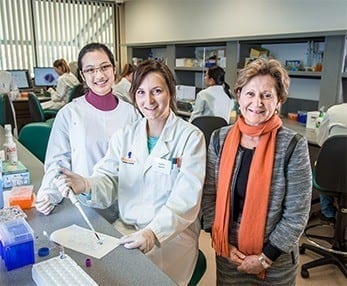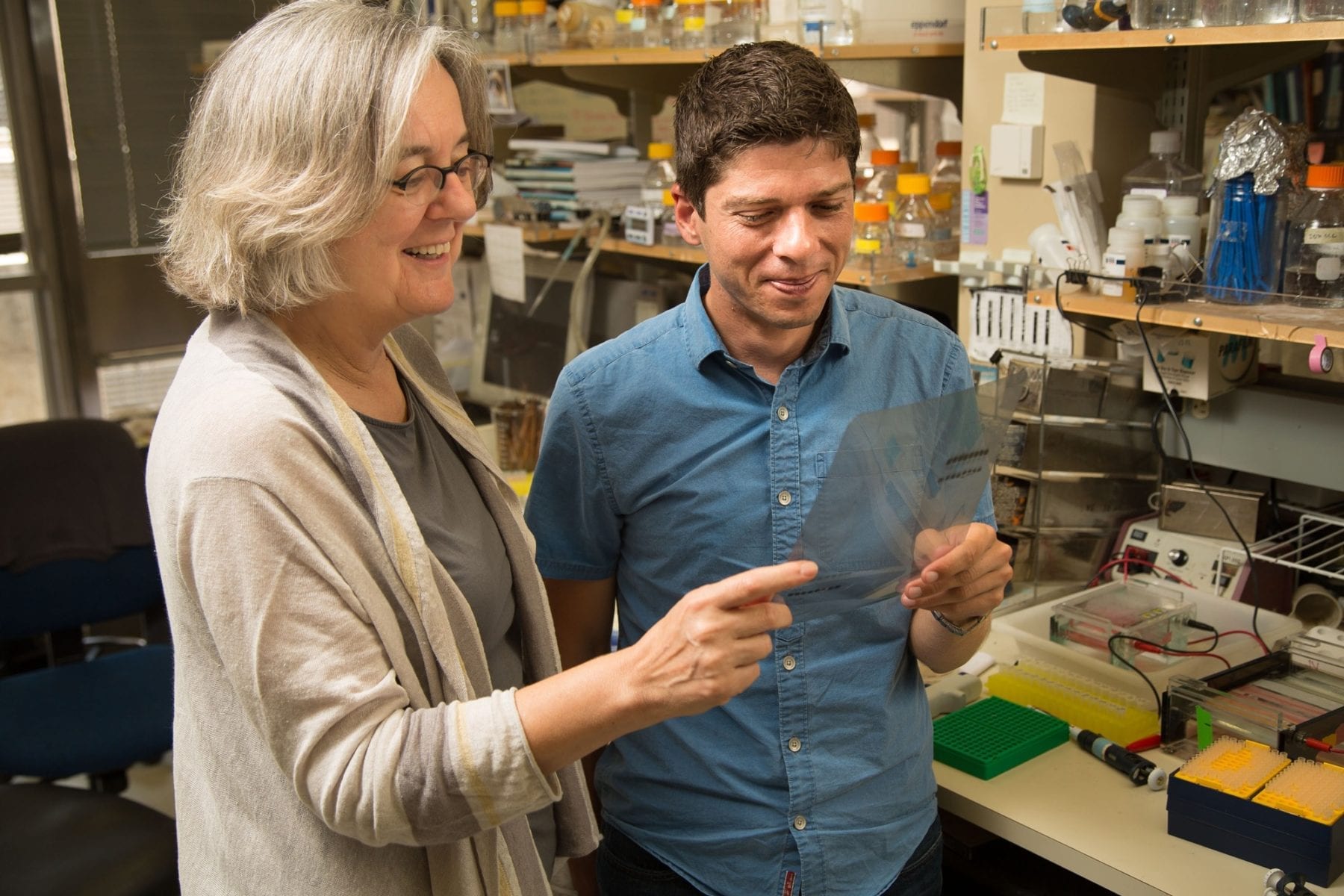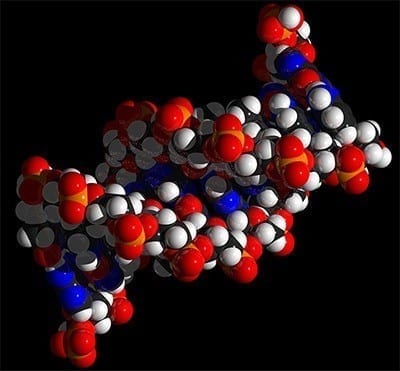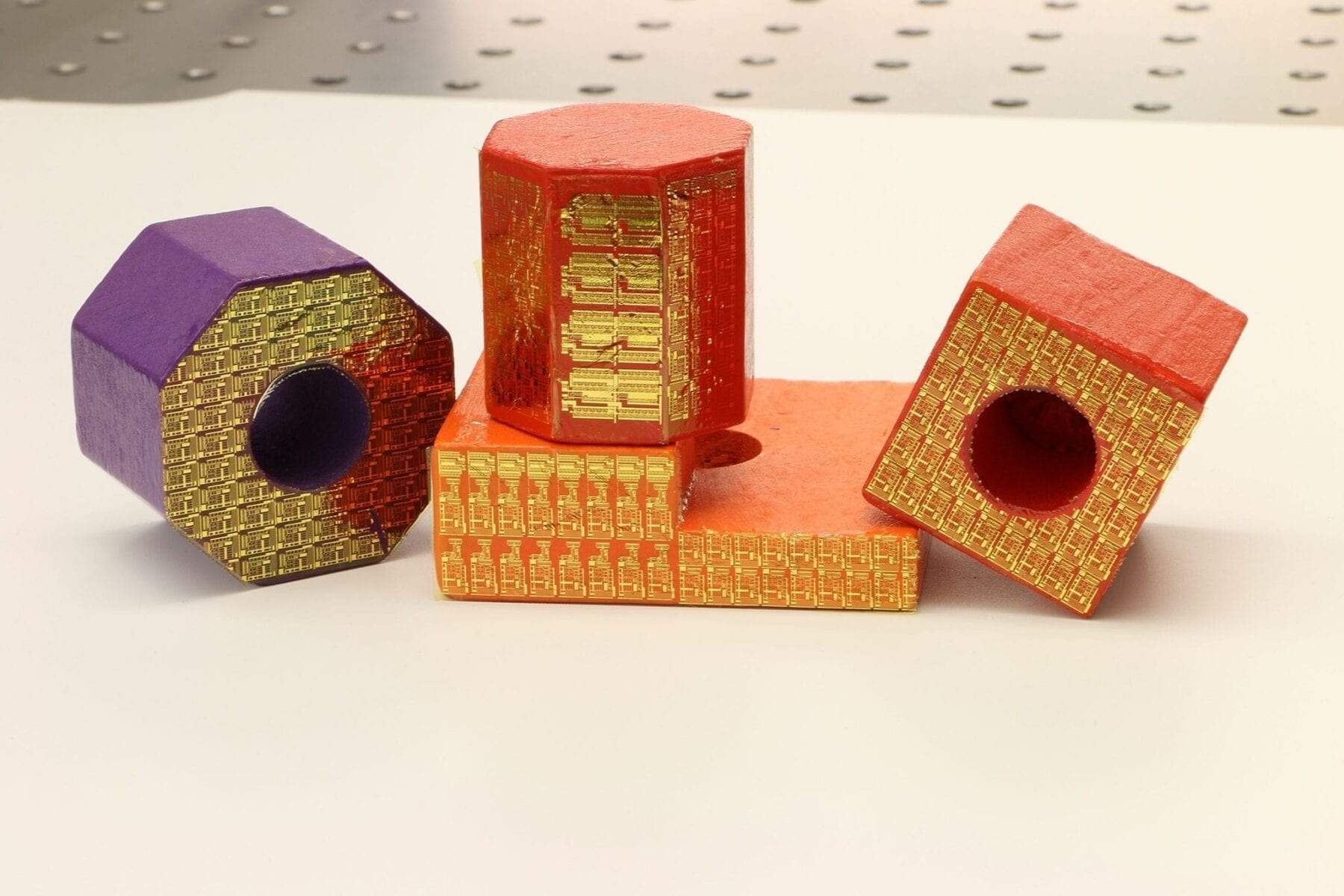
Edith Cowan University (ECU) researchers have developed the world’s first blood test capable of detecting melanoma in its early stages, a breakthrough that will save thousands of lives, as well as millions of dollars for the health system.
In a trial involving 105 people with melanoma and 104 healthy controls, the blood test was able to detect early stage melanoma in 79 per cent of cases.
Melanoma mission
Australia has the second highest rate of melanoma in the world, with 14,000 new diagnoses and almost 2000 deaths each year.
Lead researcher PhD candidate Pauline Zaenker said identifying melanoma early was the best way to preventing these deaths.
“Patients who have their melanoma detected in its early stage have a five year survival rate between 90 and 99 per cent, whereas if it is not caught early and it spreads around the body, the five year survival rate drops to less than 50 per cent,” she said.
“This is what makes this blood test so exciting as a potential screening tool because it can pick up melanoma in its very early stages when it is still treatable.”
Visual implications
Currently the main way melanoma is detected is by a visual scan by a clinician with any areas of skin that are of concern excised and sent for a biopsy.
Ms Zaenker, from ECU’s Melanoma Research Group (MRG), said the new blood test could provide doctors with a powerful new tool to detect melanoma before it spreads throughout the body.
“While clinicians do a fantastic job with the tools available, relying on biopsies alone can be problematic. We know that three out of four biopsies come back negative for melanoma,” she said.
“The biopsies are quite invasive, with a minimum of 1cm by 1cm of skin excised from the patient.
“They are also costly, with previous research showing that the Australian health system spends $201 million on melanoma each year with an additional $73 million on negative biopsies.”
Antibodies provide early warning
The blood test works by detecting the autoantibodies the body produces in response to the melanoma.
“The body starts producing these antibodies as soon as melanoma first develops which is how we have been able to detect the cancer in its very early stages with this blood test. No other type of biomarker appears to be capable of detecting the cancer in blood at these early stages.” Ms Zaenker said.
“We examined a total of 1627 different types of antibodies to identify a combination of 10 antibodies that best indicated the presence of melanoma in confirmed patients relative to healthy volunteers.”
Wider implications
MelanomaWA Chief Executive Officer Clinton Heal knows first-hand the importance of developing new ways to detect skin cancer – he has had 34 secondary tumours removed since he was diagnosed with melanoma at the age of 22.
“At MelanomaWA we see first-hand the importance of early detection and how it’s critical to the long term survival of people diagnosed with melanoma,” he said.
“I am personally so excited to see this research transcending into clinical practice, having given of my own blood samples to the Melanoma Research Group following my diagnosis in 2005.
“My primary melanoma was not detected early, and I believe a simple blood test could have drastically improved my melanoma diagnosis and subsequent treatment since.”
Next steps
MRG head Professor Mel Ziman said a follow up clinical trial to validate the findings was being organised.
“We envision this taking about three years. If this is successful we would hope to be able to have a test ready for use in pathology clinics shortly afterwards,” she said.
“The ultimate goal is for this blood test to be used to provide greater diagnostic certainty prior to biopsy and for routine screening of people who are at a higher risk of melanoma, such as those with a large number of moles or those with pale skin or a family history of the disease.”
The blood test (MelDx) has been submitted for an international patent.
Learn more: World-first blood test to detect deadly melanoma in early stage patients
[osd_subscribe categories=’melanoma’ placeholder=’Email Address’ button_text=’Subscribe Now for any new posts on the topic “MELANOMA’]
Receive an email update when we add a new MELANOMA article.
The Latest on: Melanoma
[google_news title=”” keyword=”melanoma” num_posts=”10″ blurb_length=”0″ show_thumb=”left”]
via Google News
The Latest on: Melanoma
- These are the signs of acral melanoma to look out for on your fingernails, toenails, hands and feeton May 8, 2024 at 1:54 am
Acral Melanoma (ALM) is a specific type of melanoma that appears on the palms of the hands, the soles of the feet, or under the nails. It grows on the surface of the skin or under the nail bed before becoming invasive. ALM can also sometimes develop from an existing mole or it can appear out of nowhere on healthy skin.
- Medical Moment: Melanoma Monday with Dr. Harrison Howardon May 7, 2024 at 12:12 pm
May 6, the first Monday of May, is Melanoma Monday, a day to raise awareness of the most dangerous type of skin cancer. Harrison Howard, MD, surgical oncologist at USA Health, joined WKRG News 5 on Melanoma Monday to share the treatment process of melanoma and upcoming clinical trials at USA
via Bing News










